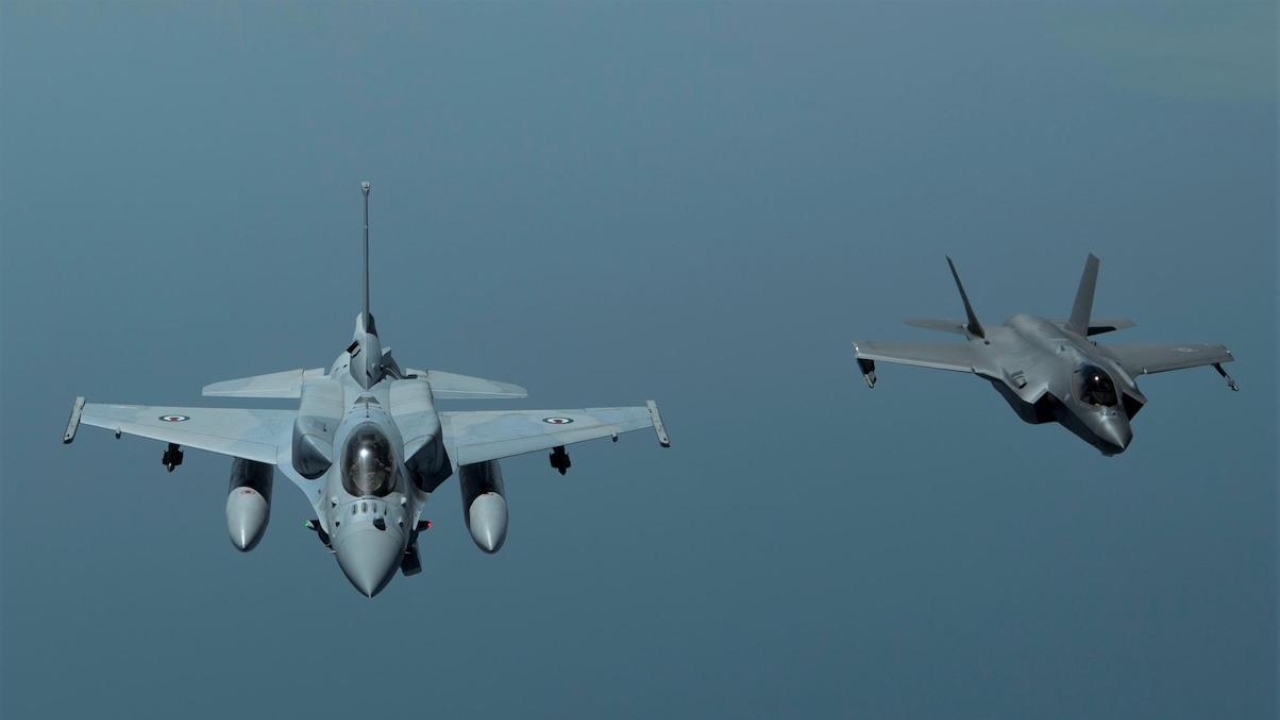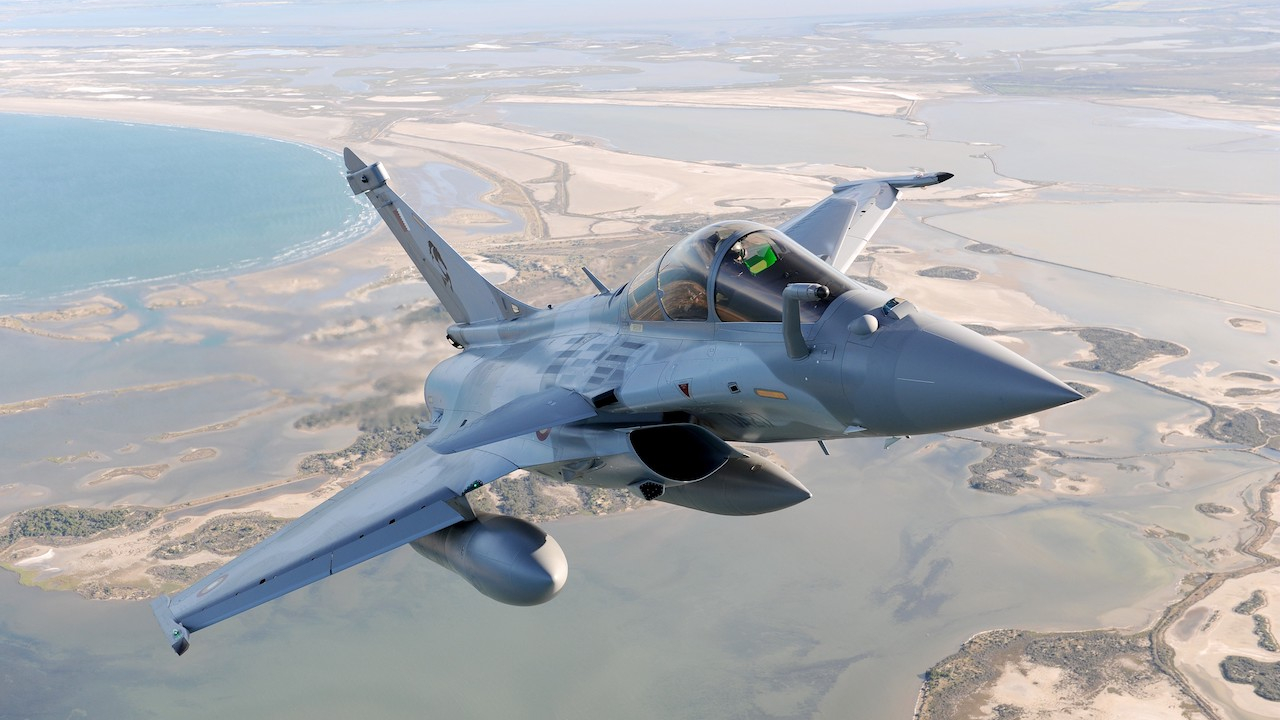Emirati F-35 deal likely to go ahead despite US go-slow
The UAE is making steady progress in its plan to procure the Lockheed Martin F-35 Joint Strike Fighter, despite some continuing US Congressional opposition.

Stealthy: The F-35A (right) looks set to replace the F-16E/F in Emirati service. Picture: US Air Force.
The UAE has long wanted to acquire a stealthy, fifth-generation fighter like the F-35.
However, the US rebuffed its attempts until the UAE recognised the Jewish state as part of the US-brokered Abraham Accords on September 15 2020.
The UAE became the first GCC nation to establish formal relations with Israel, closely followed by Bahrain.
Morocco and Sudan also subsequently established formal relations, while Egypt and Jordan had previously normalised relations with Israel in 1979 and 1994 respectively.
The proposed Emirati F-35 deal was introduced in the final days of President Donald Trump’s administration and, in addition to a fleet of 50 F-35As (costing $10.4 billion), also included 18 MQ-9B Reaper unmanned air vehicles ($2.97 billion) and a $10 billion package of support, sustainment, and both air-to-air and air-to-ground munitions. The whole package was estimated at $23.37 billion.
The US Defense Security Cooperation Agency delivered the required certification notifying Congress that the State Department had approved the possible foreign military sale (FMS) of F-35s and MQ-9Bs to the Government of the United Arab Emirates on November 10 2020.
The sale was opposed by supporters of Israel, by some who disapproved of what they regarded as the UAE’s “destabilising activities, aggressive foreign policy and internal repression”, and by some who saw the sale as fuelling an arms race that would lead to a fresh wave of regional instability. Others feared that it could lead to the aircraft’s secrets being compromised.
When Trump left office on January 20 this year, the incoming Democrat administration of Joe Biden paused the deal to allow for a review. Since then, it has slow-walked the UAE F35 deal, expressing concern about Emirati links with China, as well as fear that F-35 technology could be leaked to Beijing.
It does seem likely that the sale will go ahead, but will come with some very stringent terms and conditions attached.
In addition to standard end-user agreements prohibiting any transfer of aircraft or components to any third-party without explicit US permission, Washington may also impose conditions as to what non-US equipment the UAE can buy and operate.
The US cancelled Turkish orders for up to 100 F-35s for its air force after warning that Turkey could not operate both the F-35 and the Russian S-400 SAM, fearing that having both systems in service in Turkey could have allowed Russia to obtain sensitive information on the F-35s’ capabilities.
US allies who try to procure Russian equipment are likely to find themselves subject to the 2017 Countering America’s Adversaries Through Sanctions Act (CAATSA) – and to having aircraft like the F-35 withheld.
Abu Dhabi has already bought Russian Pantsir-S1 air defence systems and the US might insist on their disposal, or prohibit the purchase of additional systems in the future under CAATSA, as a non-negotiable precondition for receiving the F-35.
The US may be even more concerned by the UAE’s growing military and economic ties with China, which is now the biggest buyer of crude oil from the Gulf.
China has proved itself willing to sell equipment to Gulf states that the US will not, and without political conditions. This has already seen Saudi Arabia and the UAE buying armed drones from China.
In April 2021, the Biden administration told lawmakers it was proceeding with the F-35 sale, while pressing the UAE to remove Huawei technologies from its telecommunications network and to distance itself from China.
At much the same time, Democratic senators also introduced a new ‘Secure F-35 Exports Act of 2021’, calling for greater Congressional oversight of F-35 sales to non-NATO countries, expressing concerns over the security of F-35 technology, and requiring that any sale would not reduce Israel’s qualitative military edge.
Stay up to date
Subscribe to the free Times Aerospace newsletter and receive the latest content every week. We'll never share your email address.


